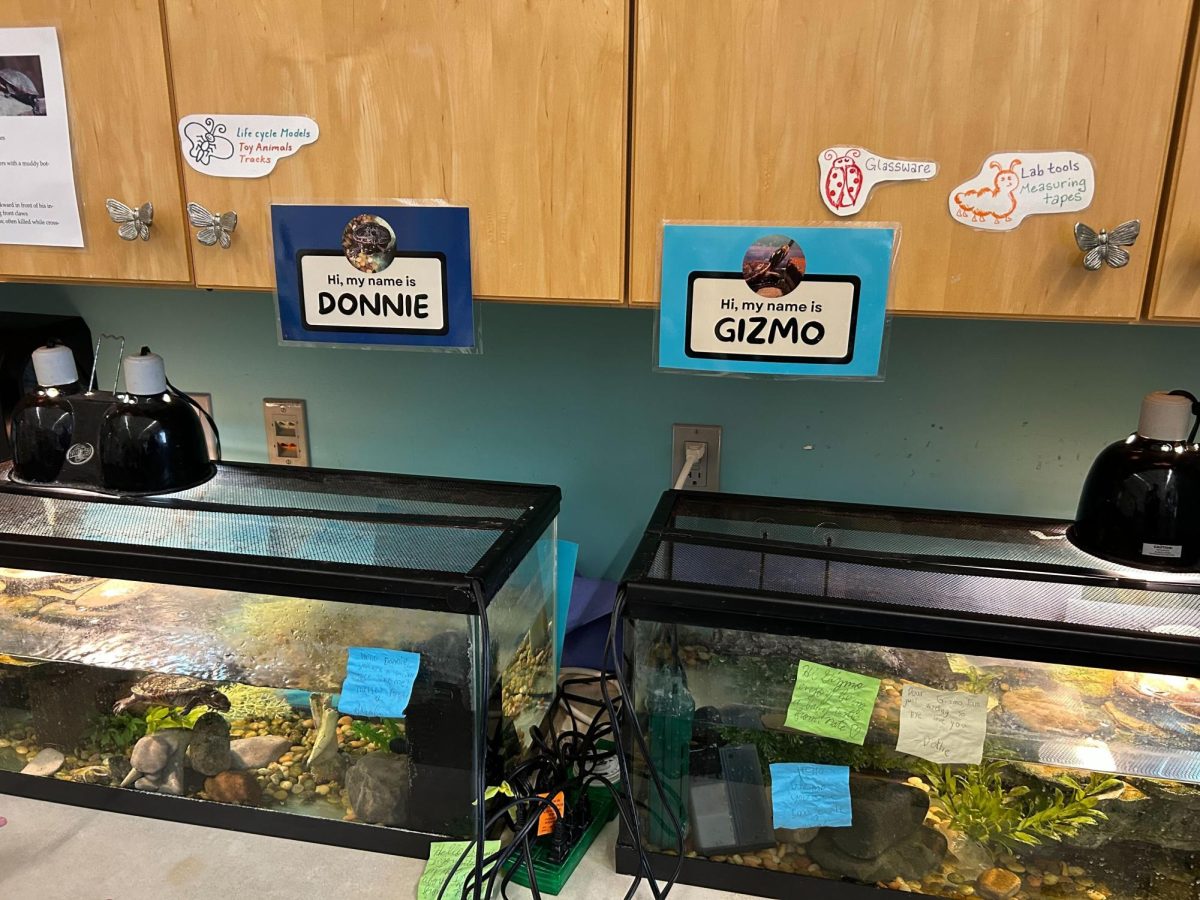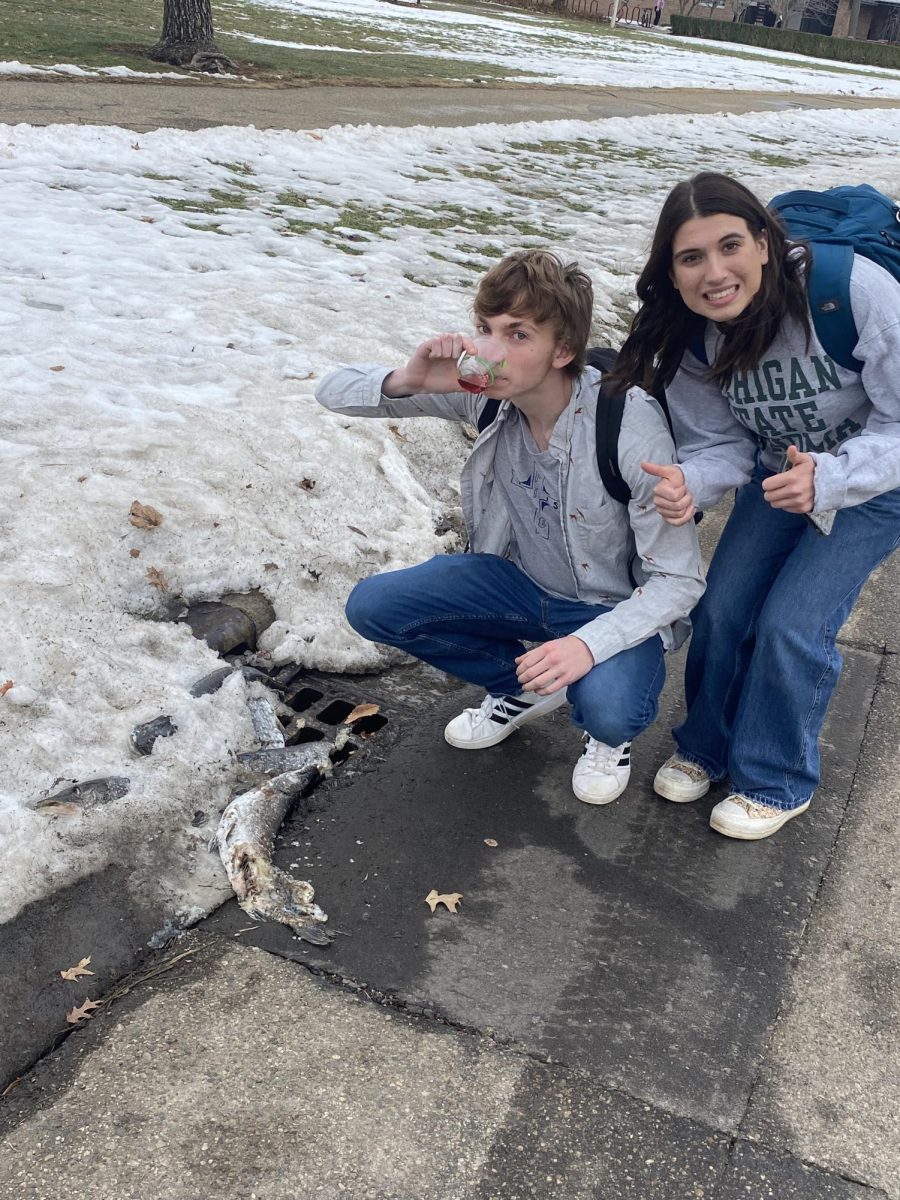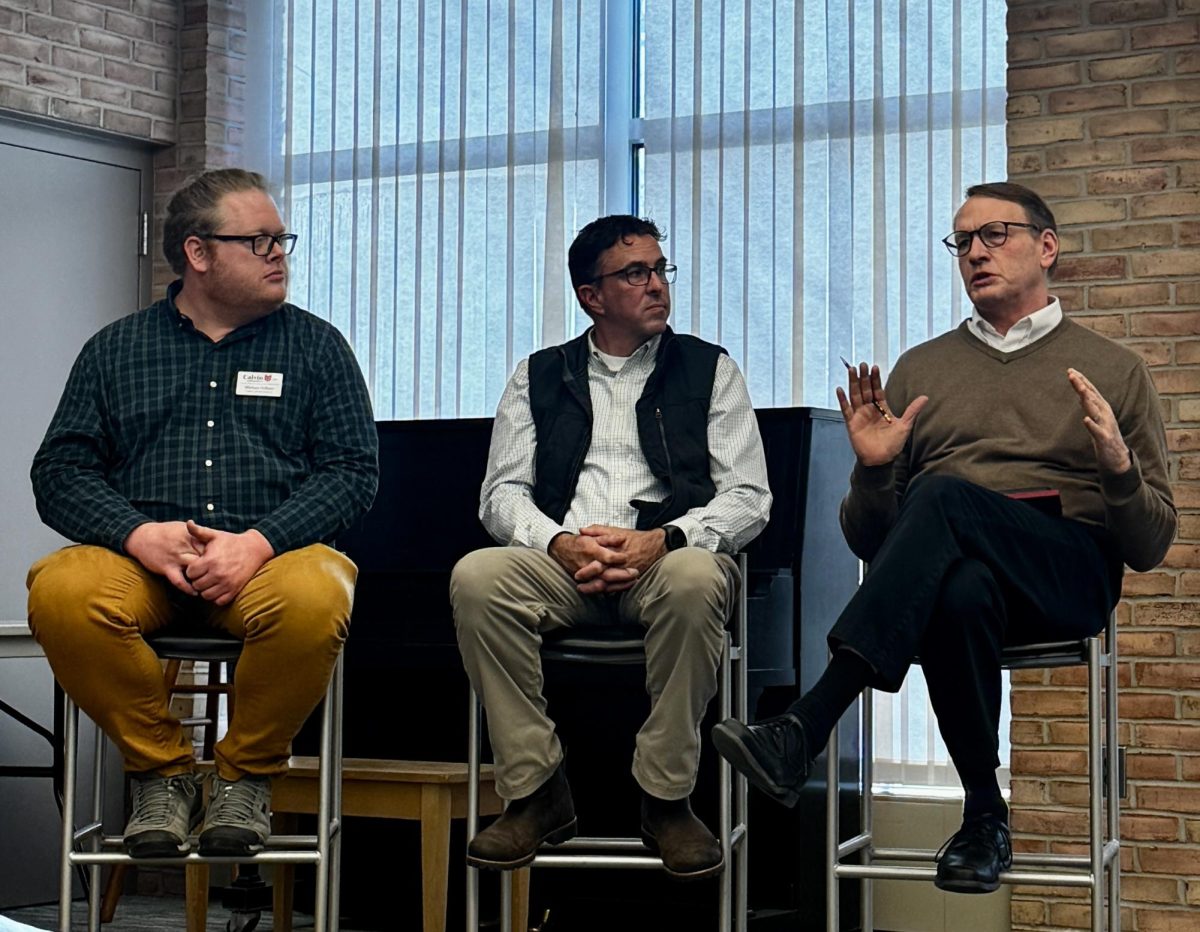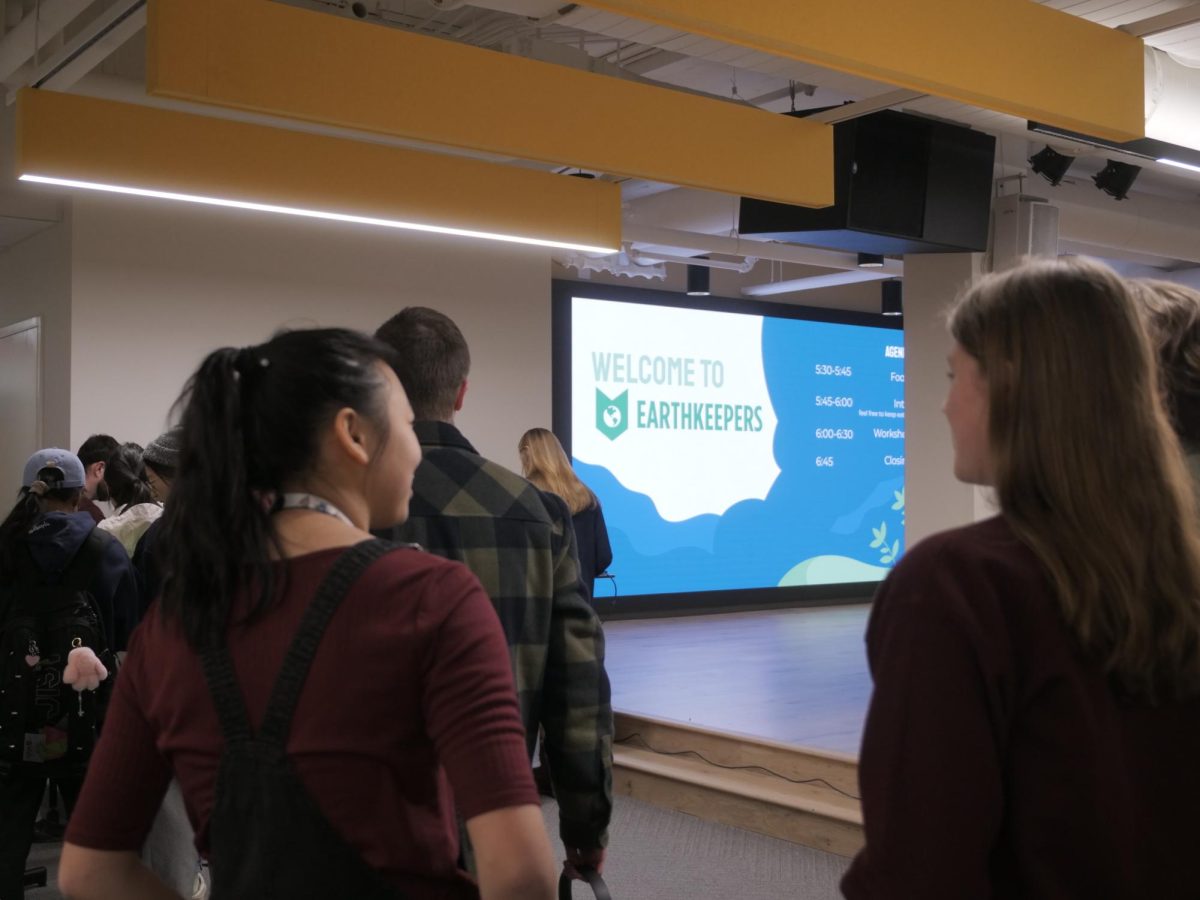As spring settles in on Calvin University’s campus, students have the chance to connect with more than just their books – they’re also meeting the wildlife that calls Calvin’s Ecosystem Preserve and Native Gardens home. The “Meet the Turtles” event, hosted at the Bunker Interpretive Center (BIC), offers students a hands-on way to engage with the preserve’s resident turtles and learn about Calvin’s stewardship activities.
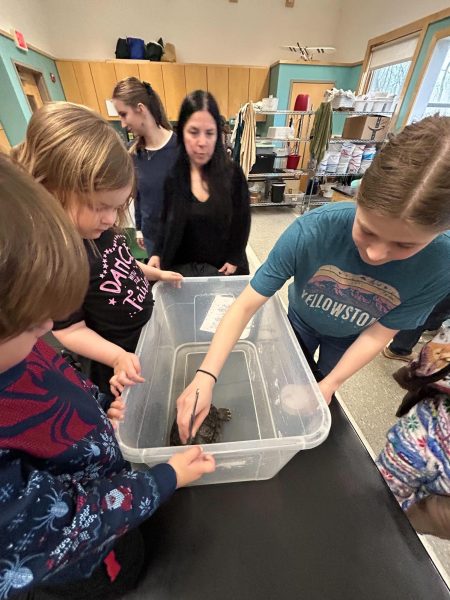
The Bunker Interpretive Center is home to four turtles: Gizmo, Donnie, Curtis, and Lizzie. Visitors can visit the turtles during regular hours in their tanks, but this event allowed visitors to touch and interact with the turtles and observe their feeding time. Onlookers were able to learn all about what the turtles eat, how they live, and how they are cared for.
While “Meet the Turtles” aims to celebrate the outdoors and the Lord’s creation, it also helps students form connections with each other and the campus community. Calvin’s Ecosystem Preserve is a unique on-campus space that is often overlooked; hosting events onsite aims to encourage more students to explore the unique features of the space.
Tom Hartzell, campus sustainability program coordinator, said that the mission of events in the preserve like Meet the Turtles is to help connect students and the local community to nature and learn how they can be better stewards of creation. Hartzell also spoke about the importance of spending time in nature, noting a diverse set of health benefits – from the physical health that comes from walking or jogging along the trails to the mental benefits of simply decompressing and stepping away from the busyness and stress of school.
The preserve offers a variety of features and events for students and community members alike. Volunteer opportunities, art classes, trail walks, and educational classes for all ages are just some of the events offered. The Native Plant Sale is also an event where native plants grown on site in the preserve are sold to encourage continual growth of the plants that were here in Michigan long before humans took over. Students and faculty are encouraged to explore the preserve—whether walking the vast acreage of trees and native plants or attending some of the many events hosted at the BIC.




